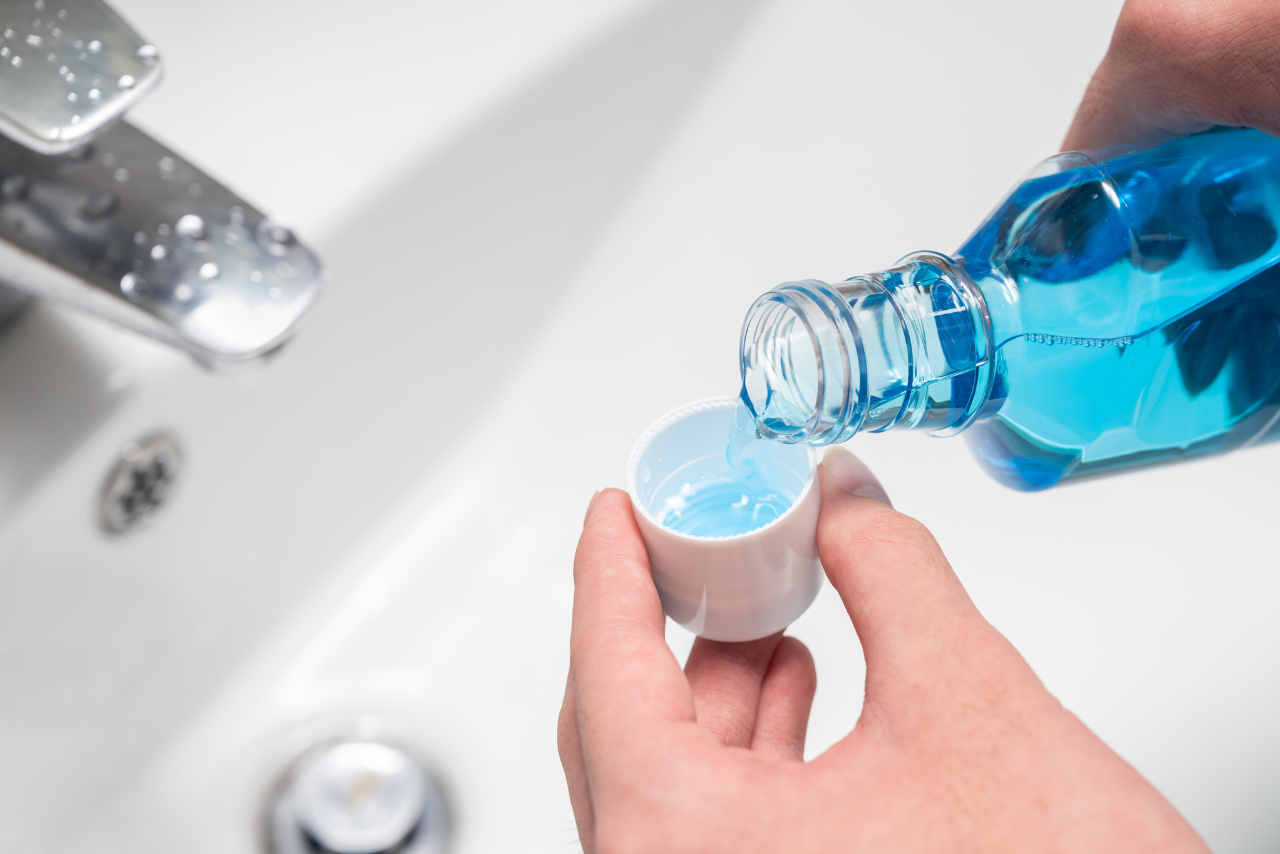What Happens if You Drink Mouthwash?
What Happens if You Drink Mouthwash? Drinking mouthwash can expose you to high levels of alcohol, often 14% or more, which is higher than most beer and some wine. While it may cause intoxication, it also poses serious risks such as nausea, vomiting, and poisoning due to the additional harmful chemicals it contains. In some cases, drinking mouthwash may indicate an alcohol addiction or a lack of access to traditional alcoholic beverages.
If you or a loved one are struggling with alcohol abuse, seek help today at the Retreat of Atlanta. Call us or visit our admissions page to take the next step towards healing.
Why Would Someone Drink Mouthwash?
Before we discuss what happens if you drink mouthwash, let’s first address another common question on this topic: What would motivate someone to drink mouthwash in the first place?
There are many potential reasons why someone would make this choice, but in the majority of cases, the mouthwash’s alcohol content is likely an important factor.
Still, why would someone opt for mouthwash instead of beer, wine, or another typical alcoholic beverage? It could be due to desperation and access:
- They have been experiencing powerful cravings for alcohol.
- They are attempting to prevent or alleviate alcohol withdrawal symptoms.
- Mouthwash is the only substance with alcohol that is available to them.
- Mouthwash is the only substance with alcohol that they can afford.
Another possible reason is that they are trying to hide their alcohol use from friends and family members. Mouthwash can be intoxicating, but it won’t leave them with a telltale smell of alcohol on their breath. Also, if someone finds a bottle of mouthwash in their house, that’s not as suspicious as if they found beer, wine, or distilled spirits.
Mouthwash isn’t the only “nontraditional” source of alcohol for someone who is desperate. Other options include cough medicine, hand sanitizer, perfume, and rubbing alcohol.
 What Happens if You Drink Mouthwash?
What Happens if You Drink Mouthwash?
Regardless of your motivation, what happens if you drink mouthwash?
The effects of this decision can be influenced by a variety of factors, primarily which type of mouthwash you drink, how much you consume, and how often you engage in this behavior.
In addition to alcohol, many popular brands of mouthwash also contain other substances that can be quite harmful when consumed in large amounts. These dangerous ingredients include:
- Hydrogen peroxide
- Chlorhexidine gluconate
- Methyl salicylate
The greatest risk for someone who drinks mouthwash is overdose, which is a form of poisoning. Signs and effects of mouthwash overdose can include:
- Blurred vision
- Blindness
- Powerful headaches
- Intense abdominal pain
- Intestinal damage
- Nausea, vomiting, and diarrhea
- Altered heart rate
- Abnormal breathing
- Drop in body temperature
- Low blood pressure
- Confusion and disorientation
- Loss of consciousness
- Kidney damage
- Liver failure
- Coma
- Death
Does Drinking Mouthwash Mean You’re an Alcoholic?
In the United States, addiction diagnoses are typically based on the criteria established in the fifth edition of the Diagnostic and Statistical Manual of Mental Disorders (DSM-5).
Drinking mouthwash is not among the symptoms listed in that reference book’s entry for alcohol use disorder (alcoholism). However, as noted earlier, someone who resorts to consuming this common hygiene product due to its alcohol content is likely acting on cravings or attempting to hold off withdrawal – both of which are included in the DSM-5’s diagnostic criteria.
In addition to having cravings and developing withdrawal symptoms when you can’t drink, other signs of alcoholism from the DSM-5 include:
- Spending a considerable amount of time acquiring, using, or recovering from the use of alcohol
- Often drinking more alcohol, or drinking for a longer period of time, than you intended
- Failing to meet your personal, academic, and/or personal responsibilities as a result of recurrent alcohol use
- Continuing to drink even after incurring physical, psychological, or social harm due to prior alcohol use
- Drinking alcohol in situations that are particularly dangerous, such as prior to driving a car or while you’re also using other substances
- Reducing or ending your participation in important activities because of alcohol use
- Developing tolerance, which means you need to drink more to achieve the effects that you used to experience from smaller amounts of alcohol
- Having a persistent desire to limit or end your alcohol use, but being unable to do so
Someone who exhibits these types of signs may be in crisis, and they should consult with their healthcare provider or an addiction treatment professional.
Alcoholism is a chronic, progressive disease. If you don’t get help, the problem won’t simply go away. In fact, over time it will likely get worse. But if you find a treatment program that can meet your specific needs, and you put in a concerted effort, you can stop drinking and start living a much healthier life in recovery.

Find Treatment for Alcohol Addiction Near Atlanta
The Retreat of Atlanta is a trusted source of medical detoxification and residential rehab services for adults who have become addicted to alcohol and other substances.
Our detox team can help you get through alcohol withdrawal safely and with as little discomfort as possible. Once you have completed this process, you can transfer directly into our residential program.
During the residential phase of your treatment, you can develop vital relapse-prevention skills and begin to build a foundation for a more promising future in recovery. Every step of the way, you will be guided and supported by a team of highly skilled and compassionate professionals.
To learn more about how we can help you or a loved one, or to schedule a free assessment, please visit our Admissions page or call us today.